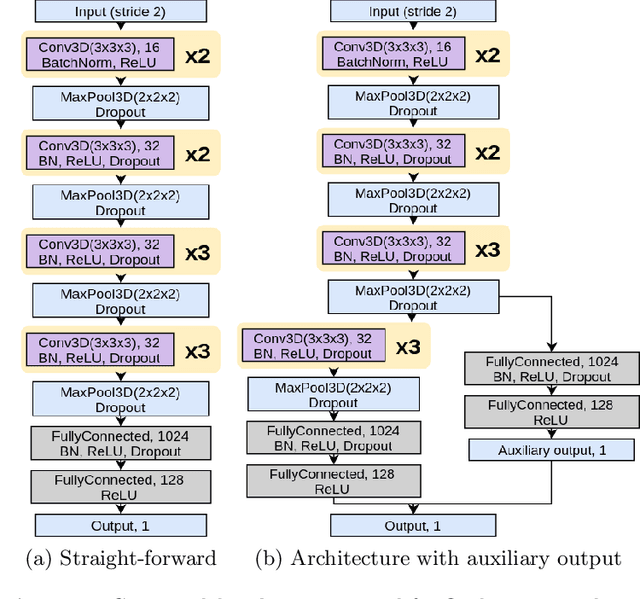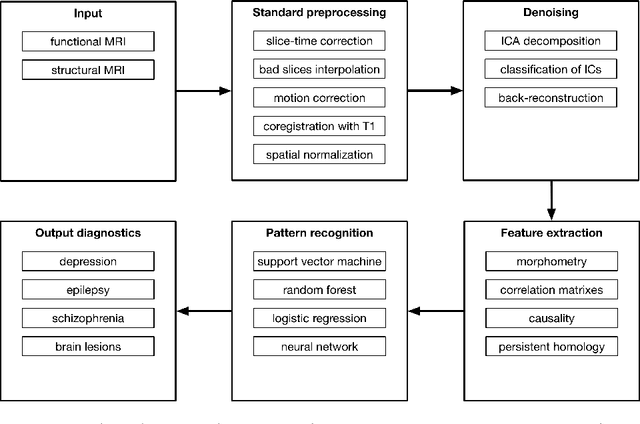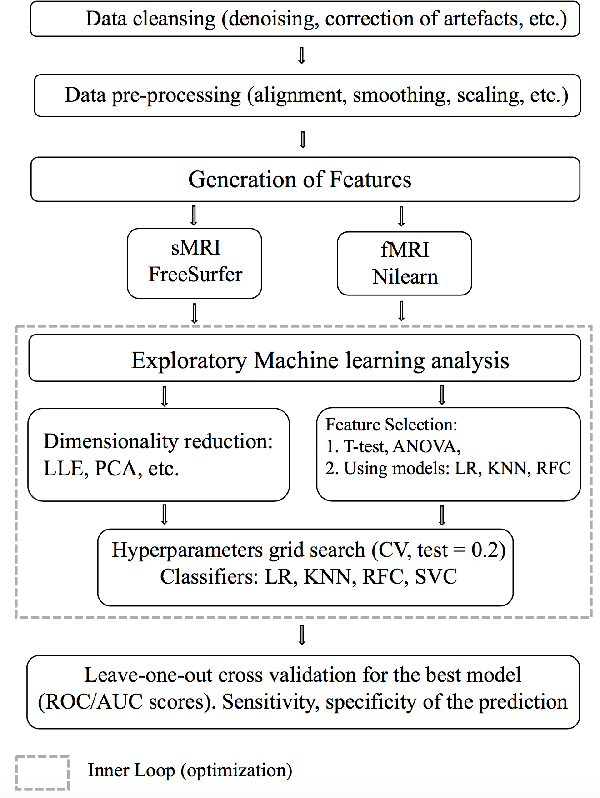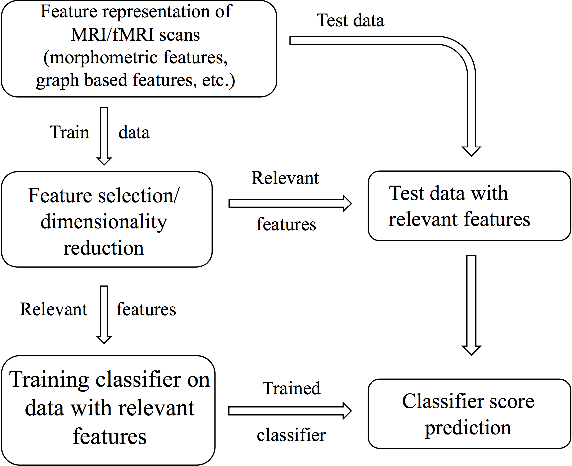Svetlana Sushchinskaya
Ensemble of 3D CNN regressors with data fusion for fluid intelligence prediction
May 25, 2019


Abstract:In this work, we aim at predicting children's fluid intelligence scores based on structural T1-weighted MR images from the largest long-term study of brain development and child health. The target variable was regressed on a data collection site, socio-demographic variables and brain volume, thus being independent to the potentially informative factors, which are not directly related to the brain functioning. We investigate both feature extraction and deep learning approaches as well as different deep CNN architectures and their ensembles. We propose an advanced architecture of VoxCNNs ensemble, which yield MSE (92.838) on blind test.
* 10 pages, 1 figure, 2 tables
fMRI: preprocessing, classification and pattern recognition
Apr 26, 2018

Abstract:As machine learning continues to gain momentum in the neuroscience community, we witness the emergence of novel applications such as diagnostics, characterization, and treatment outcome prediction for psychiatric and neurological disorders, for instance, epilepsy and depression. Systematic research into these mental disorders increasingly involves drawing clinical conclusions on the basis of data-driven approaches; to this end, structural and functional neuroimaging serve as key source modalities. Identification of informative neuroimaging markers requires establishing a comprehensive preparation pipeline for data which may be severely corrupted by artifactual signal fluctuations. In this work, we review a large body of literature to provide ample evidence for the advantages of pattern recognition approaches in clinical applications, overview advanced graph-based pattern recognition approaches, and propose a noise-aware neuroimaging data processing pipeline. To demonstrate the effectiveness of our approach, we provide results from a pilot study, which show a significant improvement in classification accuracy, indicating a promising research direction.
Machine Learning pipeline for discovering neuroimaging-based biomarkers in neurology and psychiatry
Apr 26, 2018



Abstract:We consider a problem of diagnostic pattern recognition/classification from neuroimaging data. We propose a common data analysis pipeline for neuroimaging-based diagnostic classification problems using various ML algorithms and processing toolboxes for brain imaging. We illustrate the pipeline application by discovering new biomarkers for diagnostics of epilepsy and depression based on clinical and MRI/fMRI data for patients and healthy volunteers.
 Add to Chrome
Add to Chrome Add to Firefox
Add to Firefox Add to Edge
Add to Edge